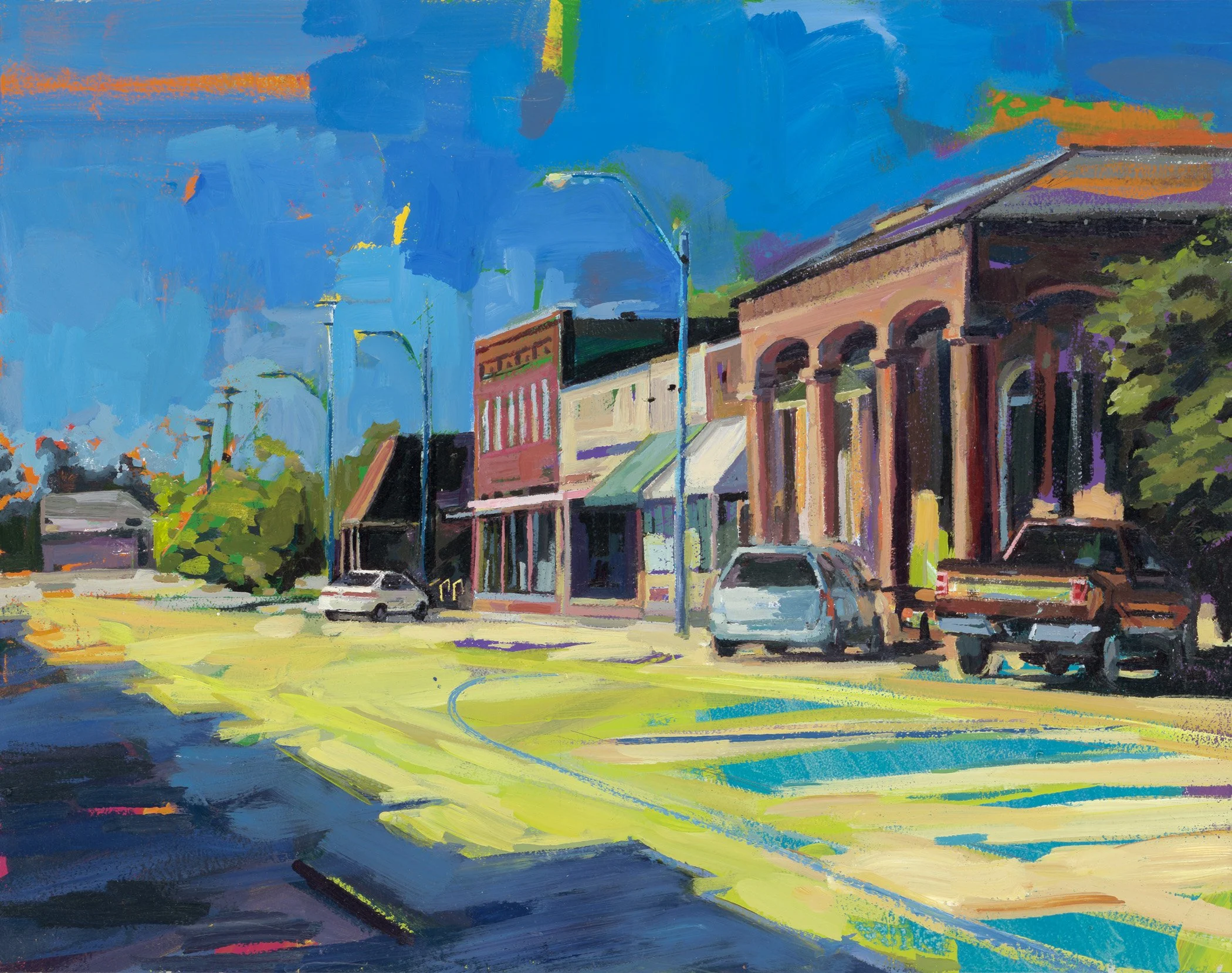Why Assets Matter More Than You Think
A common thread linking just about everyone I’ve interviewed for The What’s Good Project is a deep emotional connection to their community. Like magnets, these almost indescribable bonds stem either from the feelings that the place conjures up, the significant history of the place, the promise of a better future, or priceless childhood memories.
I don’t often like to speak in generalities, but I would venture to guess that we all have that pull to some place, and that those emotional ties give us inklings about what we value. And if enough folks feel that way about a person, place or thing in our communities, it’s fair to say we’ve uncovered an asset.
(I hate to reduce emotional connection to something as dry-sounding as “asset,” but here we are.)
I had never really thought deeply about the concept of community assets until I started working for Iowa State Extension and Outreach. I mean, all of us evaluate what we believe to be good or bad for our communities on the regular. See: any location-based Facebook community or any local letters to the editors. Hell, you could sit at any bar in America and know pretty quickly what folks think about where they live.
But I hadn’t thought about what actually makes a good community, beyond my own piddling biases.
Nyberg Sculpture Park, Vining, Minnesota.
The ABCDs of Asset-Based-Community Development
So, stumbling upon the concept of Asset-Based-Community-Development (ABCD) was both a treasure trove of insight and a call to action to curb my own tendency toward bitching.
What is an asset? In a nutshell, unlike a financial asset, a community asset is a person, place, or thing that can be identified as improving the quality of community life. That’s an important distinction because we can all make the case for many persons, places, or things that improve our personal quality of life. I would argue that if our personal comfort comes at the expense of the greater community’s comfort, it’s not a community asset.
Examples are, but certainly not limited to:
· solid public schools
· good water quality
· public green spaces
· community festivals
· an active retiree population - yes, you read that right.
Jennifer Drinkwater, Greenville Cypress Preserve, acrylic on wood, 40” x 20”, 2024.
The Greenville Cypress Preserve, located in Greenville, Mississippi, is a 16-acre ecosystem right in town that has a couple miles of public walking trails.
If you’re not lucky enough to have visited a cypress swamp yet, allow me to elaborate. Mississippi has over 130 cypress swamps dotted throughout the landscape. These magical swamps provide refuge to large animal populations, as well as sites of eco-tourism for hikers and paddlers and fisherfolk. Greenville’s Cypress Preserve exists because of the fortitude and dedication of the Greenville Garden Club. Back in the 1930’s these visionary ladies began fundraising to purchase this plot of land, and maintained it until 2002 when the Greenville Cypress Preserve Trust was formed.
According to the Trust, “The preserve continues to grow in popularity among area residents. Since the completion of the boardwalks and trails, numerous visitors can be seen walking or jogging the trails as a part of their daily exercise routine. It has become a favorite spot for local and visiting photographers and birders alike, and the addition of the benches and the observation deck enhances the preserve as a place to relax and enjoy the natural beauty of the area.”
Why look for Assets?
According to the Community Toolbox from the University of Kansas, the simple act of identifying community assets can lead to greater community improvement by “enabling residents to gain control over their lives.” The good folks at KU also say that
“You can't fully understand the community without identifying its assets. Knowing the community's strengths makes it easier to understand what kinds of programs or initiatives might be possible to address the community's needs…..When efforts are planned on the strengths of the community, people are likely to feel more positive about them, and to believe they can succeed. It's a lot easier to gain community support for an effort that emphasizes the positive - "We have the resources within our community to deal with this, and we can do it!" - than one that stresses how large a problem is and how difficult it is to solve.”
Finally, Nurture Development, a European organization focused on ABCD, waxes way more poetic than I ever could:
“[ABCD] also asks searching questions of those who seek to define certain neighbourhoods by the sum of their deficits, challenging them to open their eyes and see what is actually before them. Being actively present to the capacities and resources that exist in every community (which include the gifts of individual residents, associational inventiveness, environmental fruitfulness, cultural heritage, and economic possibilities) becomes difficult when you view the people and place you serve by the sum of their problems.
Take that, naysayers.
Jennifer Drinkwater. Driftless, acrylic on wood, 36” x 36”, 2024. Sold. View overlooking the Trout River in Decorah, Iowa.
For the deep-diving nerds like myself, check out more information on ABCD below. I am no expert on this topic and would love to learn more. Comment below to let me know about other resources, best practices, and case studies.
· University of Kansas Community Toolbox
Interested in how bringing artists into your community can increase ABCD? Check out the blog post Artist in Residence Programs: Filed under Future Community Art Toolkit Ideas.
Want to get started with a creative community project to jumpstart your ABCD? Pop over to the toolkits section to download Community Mural Toolkit, Yarn Bomb! A Toolkit for Community Fiber Projects, or POW! A Plan of Work Template for Community Art Projects.
Maquoketa Caves State Park, Maquoketa, Iowa.




